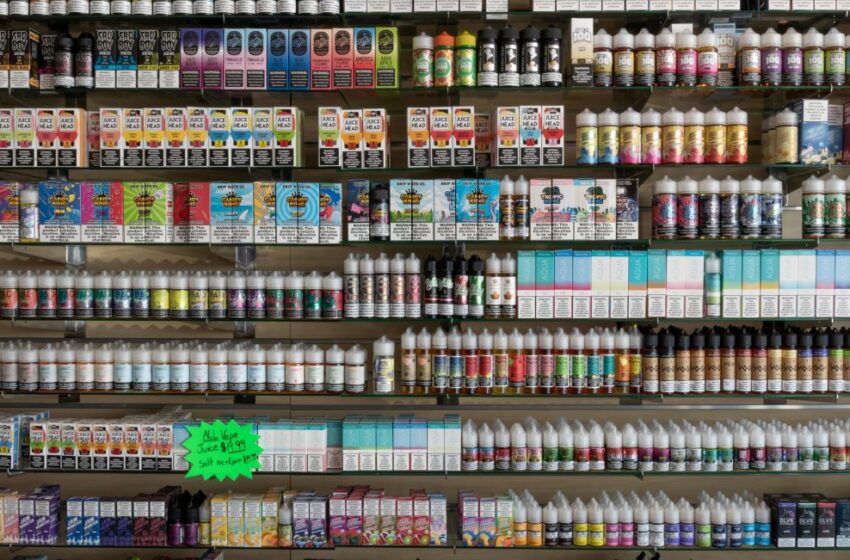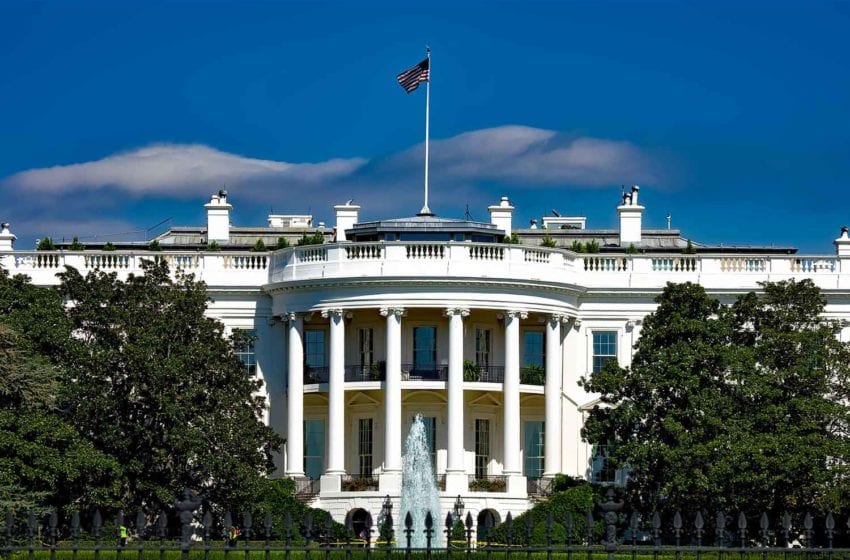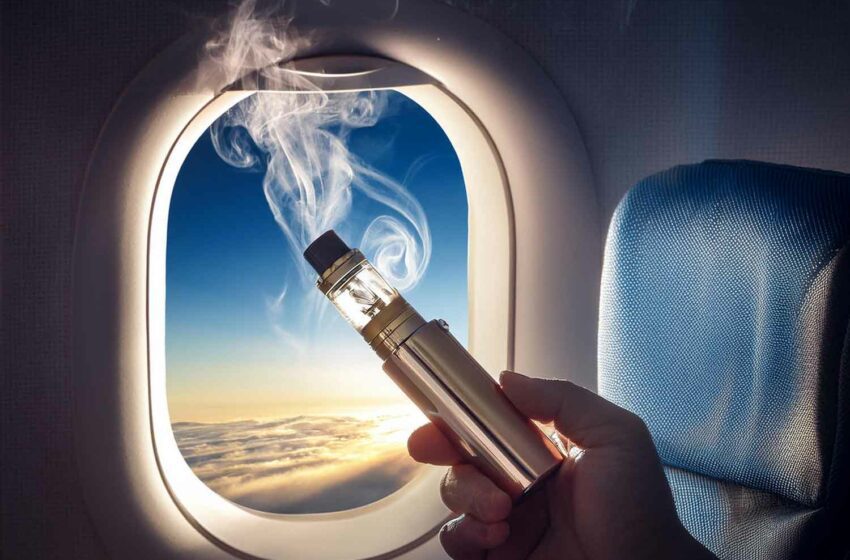
U.S. states are passing vape product registry bills to compensate for meek federal enforcement.
By Timothy S. Donahue
Vaping product registry bills are gaining momentum in the U.S. This surge is a direct response to the perceived lack of action from the Food and Drug Administration in curbing the influx of illegal disposable vaping products. Currently, three states have implemented registry rules, with four more set to follow suit in 2025. Several other states are drafting similar bills.
Critics claim that registry bills favor big tobacco companies over independent vape manufacturers, and many continue to condemn the premarket tobacco product application (PMTA) process as excessively onerous. They point out that it’s easier to bring new cigarettes to the market than it is to gain authorization for lower risk products such as vapes.
“The FDA’s Center for Tobacco Products [CTP] is supposed to comply with a statutory, 180-day deadline to review new tobacco product applications, many of which are potentially less harmful than combustible cigarettes,” says Nick Orlando, president of the Florida Smoke-Free Association. “However, as Florida’s vape manufacturers have experienced, working through this process is often a painstaking, costly and onerous ordeal that has resulted in a backlog of thousands of applications that have sat with the CTP for years.”
There are currently 13 million vapers across the U.S., according to Tony Abboud, executive director of the Vapor Technology Association. Out of millions of applications, the FDA has authorized only six different types of e-cigarettes—all made by large cigarette manufacturers, which have the resources to meet the onerous PMTA standards. To date, the FDA has not authorized any nontobacco-flavored vaping products.
Abboud compares the impact of the registry bills to a scenario in which all beer except for Bud Light and Miller Lite are removed from stores. “Bud and Miller would love it, right, because they are definitely going to pick up some more customers,” he says.
Gregory Conley, director of legislative and external affairs at the American Vapor Manufacturers Association, says there is no need to guess why companies like Altria have dedicated massive resources to support the passage of PMTA registries. In its investor reports, Altria has acknowledged that disposable vapes have been hurting the company’s cigarette sales.
“This is not about giving a competitive advantage to [Altria subsidiary] Njoy products; it’s about selling more combustible cigarettes, which kill over 400,000 people each year,” says Conley. “Fortunately, the more politicians learn about these bills, the less they like them, which is why most states that considered these bills in 2023 and 2024 have rejected them.”
Yet plenty of states are pushing ahead. Alabama, Louisiana and Oklahoma already have PMTA registry bills in effect while laws in Kentucky, Utah, Virginia and Wisconsin are set to take effect in 2025. Many vape directories are similar. Louisiana and Oklahoma, for example, nearly mimicked Alabama’s vaping registry rules. It should be noted that both the Alabama and Oklahoma registry rules, while technically in effect, are not currently being enforced. Bills to fund the enforcement of regulations in both states have been defeated by vaping industry advocates.
“This is not about giving a competitive advantage to [Altria subsidiary] Njoy products; it’s about selling more combustible cigarettes, which kill over 400,000 people each year.”
Florida’s Fortune
Florida has a reputation of doing things differently. According to Orlando, Florida’s House Bill 1007 addresses the state attorney general’s concerns without forcing retailers out of business.
Unlike other state registries, Florida’s system will not create a list of FDA products that have marketing authorization or are currently under PMTA review. Instead, Florida Attorney General Ashley Moody will compile a registry of products deemed illegal only after an administrative review process and a public comment period. The law focuses on disposable products and allows for the sale of most open system and pod system products.
“The list does not currently have any products on it. The state must create a list, SKU by SKU, meeting specific criteria,” explains Orlando. “The list and the products listed are then placed on a referral to a rules committee, which would then open up for public comment any items that made the ‘unauthorized’ list. There would also be mediation with the product owner. The real benefit is that this process is very long, and it only deals with single-use products. You can keep a product on your store shelves until the entire process is completed.”
Orlando says several state vapor industry associations are trying to figure out ways to tailor the Florida bill to their respective states.
Not everyone is excited about Florida’s approach, however. “While undoubtedly better than a full-blown ban on 98 percent-plus of the current vaping market, Florida’s bill should not be a model for other states,” says Conley. “Politicizing vaping by putting unilateral control into the hands of attorneys general does not make sense, particularly in light of the decline in youth usage we have seen since 2019 …. Adult use of vaping products has grown significantly since 2020 all while youth vaping has continued to fall. In any other reality, this would be celebrated as a significant public health victory. On the plus side, Florida does have strong due process rights built into its administrative law statutes, so Florida businesses and consumers will have the opportunity to weigh in on future bans and potentially bring litigation.”
Other manufacturers praise the Florida rules. “Properly constructed and effectively enforced product directory laws can be an important supplement to federal enforcement against illegal vapor products,” Juul Labs wrote in a statement.
“Properly constructed and effectively enforced product directory laws can be an important supplement to federal enforcement against illegal vapor products.”
Disciplinary Reaction
Another difference in Florida’s vaping rules is that the regulations have teeth to combat underage retail sales. Any person who sells a nicotine product, including vapes, to someone under 21 for a third or subsequent time will face a third-degree felony charge, punishable by up to $5,000 in fines and five years in prison.
Beginning March 1, 2025, manufacturers that sell prohibited products in the state will face a $1,000 daily fine for each such product until it’s removed from the market. This stricture will also apply to retailers, wholesalers and distributors who ship products into Florida.
Orlando says retailers have embraced Florida’s new rules. The options were either an outright ban on all flavored vaping products or HB 2007, which allowed for adult vapers to have access to a variety of flavors and hardware options to help a broader swath of combustible smokers make the switch to vaping. “Once I explain to them what really happened and they understand the dynamics of it and what it takes, actually, to get something on the list and that open systems are totally excluded, they’re happy with it,” he says.
Orlando says that, at the end of the day, the vaping business needs reasonable regulations and industry players need to be responsible. He believes the Florida regulations are a step in the right direction for tobacco harm reduction. “Let’s get real. Let’s get accountable and start doing business like we should,” he says.
Generational Bans Growing
The idea of banning access to legal nicotine products, even for those born after January 2007, originated in New Zealand. The proposal then spread to other countries, including the United Kingdom and the United States. In the U.S., states such as California, Tennessee and Massachusetts are all pushing for generational smoking bans under the guise of protecting youth and promoting social well-being.
New Zealand ditched its plans after a new government was elected earlier this year. Then, a month later, the U.K. government announced its intention to introduce a bill in Parliament prohibiting nicotine sales for future generations, aiming to phase out smoking among young people.
The U.K.’s Tobacco and Vapes Bill, if passed unamended, will be one of the world’s most rigid anti-tobacco laws and prevent children turning 15 this year or younger from ever being able to be legally sold nicotine products. Under the new law, each year, the legal age for cigarette sales—currently 18—will increase by one year. It means that people born in or after 2009 will never be able to buy cigarettes legally. The law will not affect those who are already allowed to buy cigarettes.
Critics say the Conservative Party’s proposal is “unconservative,” and some have derided it as a desperate attempt by Prime Minister Rishi Sunak to leave a legacy amid an otherwise ineffective tenure. Former Prime Minister Liz Truss is one of several members of the governing party who have said they will vote against the legislation. However, the U.K. bill was put on hold after Sunak called a general election for July. The House of Commons unveiled a list of bills it would take up before the U.K.’s Parliament dissolves ahead of this summer’s elections; the generational tobacco ban was not included. The postponement will not necessarily mean the U.K. will follow New Zealand’s example, however, as Britain’s Labour Party, which is expected to win the elections, has appeared committed to the ban.
In the U.S., generational bans recently gained some legal support after the Massachusetts Supreme Judicial Court upheld a generational tobacco ban instituted by the town of Brookline in 2020. Since the ruling, several other localities in the Greater Boston area have quickly followed suit.
The Boston suburb of Brookline law makes it illegal for anyone born after Jan. 1, 2000, to purchase tobacco products—including cigarettes, cigars and vaping products—for their entire life. The law went into effect in 2021, and despite legal challenges that pushed the ruling all the way up to the Massachusetts Supreme Judicial Court, the law has remained intact.
It was the first time legislation of this kind had become law in the United States. Just three weeks after the court decision, Stoneham, Massachusetts, became the first town to follow Brookline, approving a generational tobacco ban for anyone born after Jan. 1, 2004. Now, several other communities in Massachusetts are also considering generational bans.
Detractors claim generational bans infringe upon civil liberties and could have negative economic consequences, including boosting the black market and causing job losses. These bans also raise concerns about enforcing age restrictions and protecting the rights of adults to make their own choices.
“The tobacco industry and their clients are resurrecting all the old arguments that we have come to expect in their efforts to delay and divert this important legislation,” Martin McKee, professor of European Public Health at the London School of Hygiene and Tropical Medicine, says. “Once again, we see loaded polling questions and discredited claims about increasing illegal sales. Inevitably, these ludicrous arguments will have some traction among MPs [Members of Parliament] that reject any public health measure or have accepted the industry’s hospitality, but most will, rightly, not give them the time of day.”
In Australia, where a ban on disposable vaping products has caused a violent war between motorcycle gangs and other crime syndicates over the illegal trade of black market vapes, dozens of vape and tobacco shops have gone up in flames. According to media reports, police in Victoria were forced to investigate 27 fires linked to the illegal tobacco trade over a seven-month period.
Experts believe a convenience store crime wave could reach Britain, and the black market could explode if the U.K.’s generational ban comes into effect. “These crime groups are in the midst of a dangerous turf war as they try to gain ultimate control over the vape and illicit tobacco black market,” Theo Foukkare, CEO of the Australian Association of Convenience Stores, says. “Tobacconists are being firebombed on a weekly basis. In Victoria alone, there have now been more than 50 firebombings of retail stores in the last 12 months. They target any store that will not sell their black market product.”
The anti-nicotine agenda behind many of the government and public health groups that support generational nicotine bans is relentless and could eventually target other consumer goods, according to experts, who add that the bans are not just about nicotine but about individual freedoms and democracy.
THR advocates say that generational bans are simply another form of prohibition with dangerous consequences.













